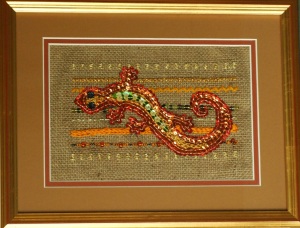I’ve got music back. I can’t believe I ever let it slip out of my life. But I did, I lost it for years.
How did I lose it in the first place? That is a tricky one, but ultimately I cared too much about what other people thought. It started with not feeling entitled to like certain bands or kinds of music, despite being drawn to them, because I wasn’t as ‘dedicated’ or as fucked up as some of the other people who were into the same stuff. Then at some point in my early twenties, a certain kind of connoisseurship started to creep into the way people talked about music. You had to have such and such an album, you couldn’t possibly claim to like so and so if you’d never heard their more obscure influences. And you definitely could not own, let alone listen to, the dreaded ‘popular’ stuff. Heard it on the radio? Throw it in the bin. Way too commercial.
Moving in with a music nerd did not help. He never set out to make me feel uncomfortable, but I did. He had the ‘right’ CD collection, which was about four times as large as mine. He was the one people talked to music about. He was the one who got to choose the tunes when people were over. I just gave up, bowed to what I presumed was his superior knowledge and taste. I even stopped playing guitar. Which breaks my heart to think about now, because none of this really came explicitly from him. It was just there, this sense that he was entitled to music and I wasn’t.
It got the point where I wouldn’t put music on even when I was asked to. One evening really sticks in my head. I worked up the courage – seriously, courage – to put an album on, only to have him and a friend ask ‘what is this shit?’ This wasn’t a typical response from him, but that pretty much put me off playing tunes for people for years. (It was Ladyhawke, in case you’re interested – I’m not ashamed anymore!)
All of this also coincided with the rise of iTunes and mp3s and Spotify and the decimation of record stores. I’ve always been a browser, be it in shops or through a collection, choosing things on whims rather than knowing precisely what I want to buy or listen to. Two things happened with the emergence of iTunes et al. First, I felt deeply disconnected and disadvantaged when it came to finding and choosing music. Having it all organised for me in a library or online store left me – and still leaves me – at a loss. I need the randomness of the physical, the visual and sensual information to help me make choices. Shuffle does nothing for me either. I cannot explain it, but there’s something clinical, hygienic, cold, about having music neatly arranged on computer that leaves me feeling disempowered. At the same time, people were mocking those of us who were paying for music through official channels rather than digging it out of online crevices. I felt simultaneously overwhelmed, disempowered and like I was being conned.
Then my iTunes flipped out and deleted my entire library – purchased tunes and my entire CD collection which I’d diligently uploaded. All gone. For no apparent reason. Nowhere to be found.
I gave up. By this point, it was such a struggle to get to music that I’d forgotten why I liked it in the first place. I even stopped listening to my CDs. It either felt like music was a money-making scheme or something that I was not capable of appreciating because I had neither the knowledge nor taste to equip me for it.
I played classical piano for 8 years. I taught myself guitar. I’d been avidly into all kinds of music since I was eleven. And by twenty-eight, I felt like I wasn’t entitled to even listen to music. How did it get to this? Because I stopped listening to the music and instead listened to all the chatter about it. The harder it became for me to access my music, the louder the chatter got. Until I only heard the chatter and nothing else.
But when my world turned upside down, when I realised the damage I’d done to my entire life by listening to the chatter of others rather than to my own instincts, music was there to catch me.
In the darkest weeks after my eleven year relationship ended, I kept the lights and radio on when I went to bed. I couldn’t face the dark or the silence, not least because sleep was pretty elusive. One morning, I woke up 4am, already sobbing, just as ‘Pacifier’ by Catfish and the Bottlemen came on. And it caught me. ‘You know I try to fail, but you just don’t know how it feels to lose something you never had and never will.’ It caught me when I was falling into another pit. Because someone else knew what that pit looked like.
I got my ears back after that. Suddenly I could hear what I was experiencing in lyrics and tunes everywhere. I wasn’t listening to it theoretically anymore. I got it. I wasn’t worrying about taste or expertise or the latest release. I got it. And suddenly I remembered why I loved music before opinions and technology got in the way. Or more accurately, I remembered how to love music.
It feels like finding a forgotten piece of myself.
Fuck the chatter. And fuck the constantly updating, buggy technology that interferes with me getting to my collection. The grin on my face as I dance alone like a lunatic with my headphones on. The goosebumps I get when my writing and the music I’m listening to come together. The peace that comes after improvising on guitar or piano. That’s what it’s about. Everything else is just noise.
